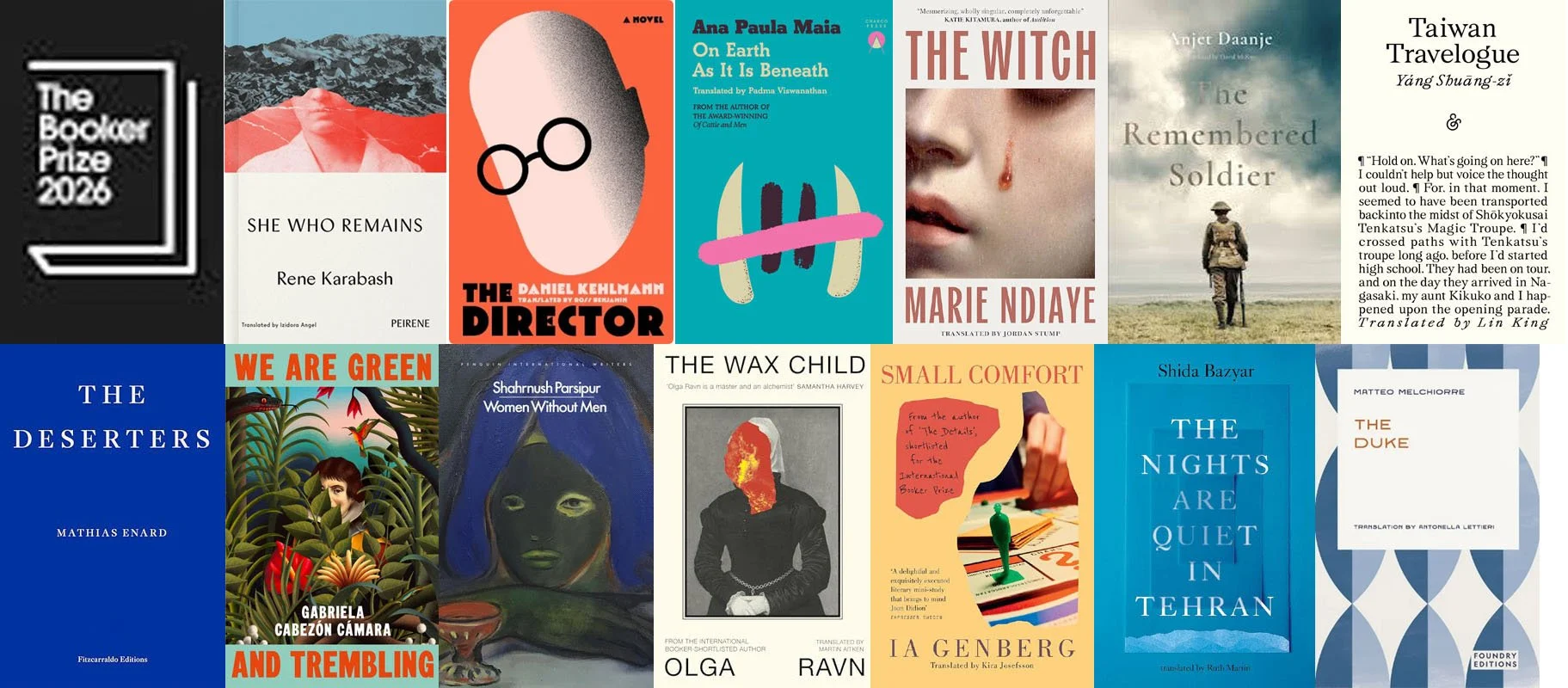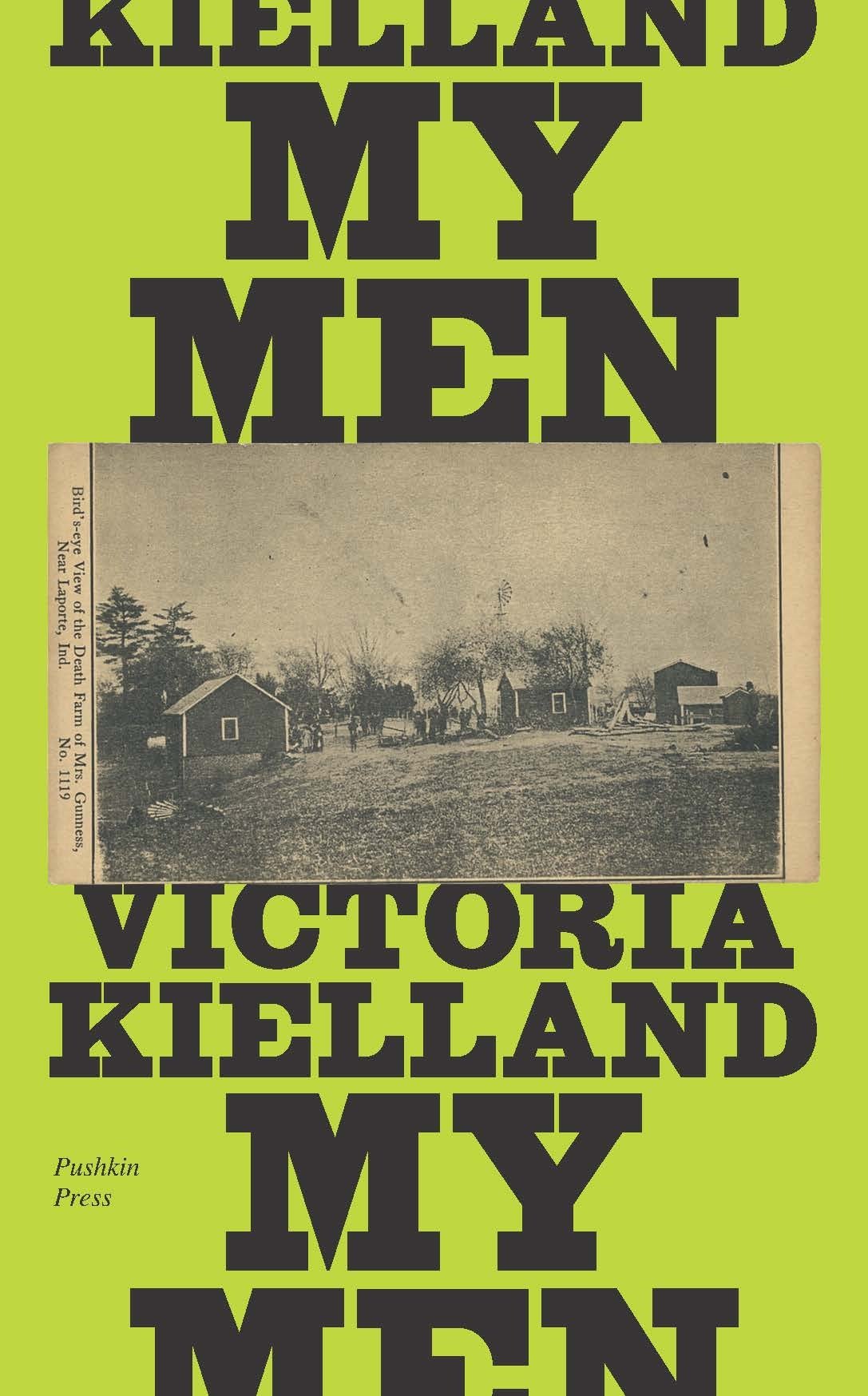Céspedes was a mid-20th century Cuban-Italian writer whose excellent novel “Forbidden Notebook” I fell in love with last year when a new English translation appeared. There's been a resurgence of her work given her influence on Elena Ferrante and this year a new, lengthier translation of her novel “Her Side of the Story” has been published. This was originally appeared in Italian in 1949 and a heavily edited English edition was originally published in 1952 under the title “Best of Husbands”. The story draws upon the author's own life and experiences as a woman who came of age in Italy before and during WWII. Although the novel is a forceful account of the limitations women experienced at this place and time, it also centres around a frustrated love story which is much less interesting. Where this story shines are in its observations about the social milieu and the imposing force of fascism. However, it feels quite repetitive in several sections and it makes me wonder if the edited version which first appeared in English might be a stronger novel.
I found it immediately engaging following the perspective of Alessandra as she looks back at her life, starting with her childhood and working up to her marriage. She has a kind of doppelgänger in Alessandro, the brother who came before her and tragically drowned at a young age. It's interesting how his loss has a different meaning for every family member and, for Alessandra, he's a kind of shadow she must live under. She also feels him like a kind of devil-on-her-shoulder presence and her mother maintains a stronger superstitious belief in his continued presence - even taking numerous visits from a medium named Ottavia to try to contact him. I found it especially gripping and moving reading about these sessions as her mother Eleonora's grief over the loss of her son is plainly evident. Alessandra gives a highly detailed account of Eleonora's melancholy life and there's a tremendous scene where her mother gives a musical performance. I loved the detail about creating a dress from Eleonora's actress mother's former costume (it felt very Scarlett O'Hara of her.) However, her talents and beauty are suppressed by her controlling and tyrannical husband. The vile remarks he makes to his family (both to his wife and daughter) is truly odious.
Eleanora also harbours a secret passion for a man named Hervey. In a way her mother's maturity feels stunted by being forced to remain in their domestic setting except to give lessons. Alessandra describes how “Her love for Hervey, which others would have judged guilty, in my eyes enveloped her in a magic veil of innocence”. This is such a refreshingly mature perspective showing an absence of moral judgement, but given the enormous lack of affection she witnesses between her parents it's not surprising she was glad her mother could find happiness by aiming her passion towards someone else. The moments where her mother tips over into a more confessional mode (acknowledging it's probably inappropriate to be burdening her daughter with such adult concerns) were very touching and the way her determination to flee with Alessandra is stymied is heartbreaking. But I do appreciate how she notes she might be viewing her mother somewhat through rose tinted glasses since she only exists in her memory.
As a depiction of the social milieu of this Italian era focusing especially on this community of women, I think the first section of this novel is wonderful. Céspedes so powerfully evokes and thoughtfully presents the gender imbalance whereby men maintained all the authority, living for the jobs they complained about and taking for granted the women that raised their children and maintained their homes. I especially liked this line about men's misconception about female desire: “They thought love was a brief fairytale for their companions, a brief passion necessary for a woman to secure the right to be a mistress of her own house, have children, and dedicate her entire life to the problems of shopping and kitchen... none of them grasped that behind every gesture, every bit of self-denial, all that feminine bravery was a secret desire for love.” Sadly, Alessandra's observations and recollections become quite circular. Maybe this is because there was a lot of monotony to her and her mother's days which seemed largely filled with inertia and silence.
However, the repetitive nature of the story continues with the introduction of Francesco, an anti-fascist academic and later leader who Alessandra falls in love with. She is initially wary of his political beliefs because all she knows of the label is from propaganda: “Anti-fascists were outlaws, suspicious individuals, banished”. I like how the novel shows her naivety as a young person who didn't really understand what was at stake and the nature of the different political camps. However, there's a curious lack of development in her maturity and understanding of the war which consumed her country. Despite getting involved with covert operations for the resistance movement she does so more out of a desire to impress Francesco than out of her own convictions. It's only natural that younger people are drawn towards people rebelling against the establishment and are led by love instead of ideological belief but it's like she gets caught in a state of improbable desire and she's incapable of maturing.
Although I found sections of the novel depicting the intensifying war engaging I do wish there had been more descriptions of changes to the landscape and its effect upon the lives of citizens. There are references to hiding in bomb shelters, food shortages and the smell of dead horses after the bombing but considering how the entire cityscape of Rome must have radically changed during that time it felt to me like Alessandra wasn't very concerned or mindful about it. I also wish there had been a bit more context in some scenes such as when during food rationing she gets some rare flour to make pasta, but Francesco returns and insists they must listen to music all day while sitting on the floor. As a consequence the pasta goes to waste when they've seemingly only had potatoes to eat for a long time. I struggled to understand the significance or logic of this though it seemed like some momentous change must have been occurring in the city. I suppose there is a lack of contextual detail because we're completely steeped in Alessandra mind and so she doesn't feel a need to explain the situation. I'm mindful that I'm imposing what I wanted from the story over what the author might have intended but I felt it made this a less satisfying novel. I don't understand how she couldn't mature more or care about the reformation of her country after the seriousness of events like her former classmate who was Jewish and taken away.
I enjoyed how there were some references which led me to learning more about Italian culture in general. For instance, I previously hadn't been aware of the Christian tradition of name day or “Onomastico” in Italy (though it's also celebrated in other European countries as well.) This is a celebration like a birthday where people mark certain days from the saint that they are named after. Sorry if other people were already aware of this but it was new to me. Of course, in the story it merely serves as another reason for Alessandra to feel slighted because Francesco forgets to celebrate her on this day. And when he tries to make up for it it's too little too late. Francesco is definitely not a great partner because he is completely engrossed in his work and seems to expect Alessandra to be the housewife who will always wait at home for his return. However, he really can't ever satisfy Alessandra's neediness because it feels like she won't be happy unless he's constantly staring at her affectionately and repeatedly saying that he loves her.
The dramatic conclusion of the novel felt rushed and unsatisfying to me but maybe that's because I'd grown too frustrated with Alessandra's lack of progression over the course of the narrative. An explanation for her mindset seemed to come with this passage where she described her feeling that “You couldn't buy the body of a slave, but you could enjoy owning the body of a woman. You acquired it with the obligation to maintain it, just as with slaves. But if I had decided to leave Francesco, the law would have recognised his right to remain master of my body. He could prevent my making use of it for years, for my entire life... A slave has greater freedom than a woman.” If this is literally how she felt then it's not surprising she's driven to such a frenzied state. However, I take objection with this logic. Firstly, it seems quite crass to liken her experience to being “worse than slavery” in this way. I think someone who has been an actual slave would disagree. Since Francesco is physically away so much she actually has quite a lot of freedom. She frequently complained about the obligations of her domestic chores but I can't realistically see how maintaining a small apartment for two could be so demanding that she has no time for herself – even while also working a job. She flirts with a man named Tomaso who seems like a much better suitor for her than Francesco yet she refused to accept him as a romantic partner - either as a lover or leaving her husband to be with him. She also refused to simply take the advice she continuously gave to her mother when she was a teenager and leave her husband to start another life. Yes, the nature of the law and social conditions might have meant she “belonged” to Francesco but he seems quite different from her father. I feel like she got in her own way of achieving any sustained sense of happiness or contentment in becoming an adult. Though there was the tragedy of her mother's situation and the example for how a woman must live laid out by grandmother Nonna, it felt frustrating that she couldn't see beyond the confines of these restrictive mindsets.
So I'm afraid I ultimately found this novel disappointing. It seems telling in the afterward by Elena Ferrante that she focuses on the first section about Alessandra and her mother. This felt to me like the strongest part of the novel. Throughout her entire relationship with Francesco the narrative grew increasingly repetitive because she seemed locked in a circular frame of mind. I think this novel could lose quite a few pages while maintaining its central premise and meaning. By the end I felt quite exhausted with Alessandra and I was glad to finish the book. There were many parts I admired but if Alessandra stood in as a kind of cipher for the author herself I don't understand why she couldn't show the protagonist progressing towards a more successful career as Céspedes obviously did herself or Alessandra trying to enact political changes for women's rights rather than imposing a melodramatic conclusion to the story. This book felt bloated in comparison to the novel “Forbidden Notebook” which felt more artfully composed and true to life.

























